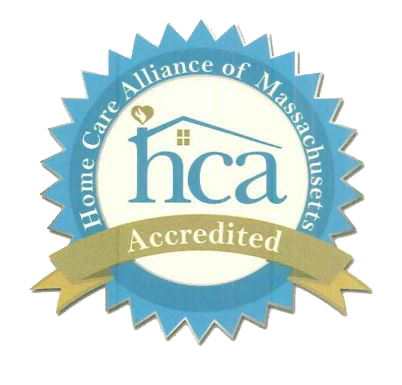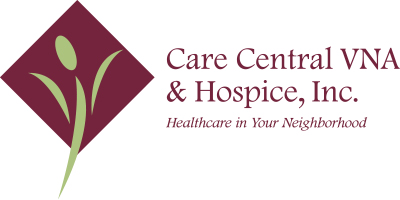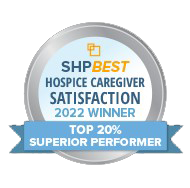FAQ
What is Home Care?
 Home Care is a form of health care service provided where a patient lives. Patients can receive home care services whether they live in their own homes, with or without family members, or in an assisted living facility. The purpose of home care is to promote, maintain, or restore a patient's health and reduce the effects of disease or disability. The main goal of home care is to provide for the medical needs of patients, allowing them to safely remain living at home, regardless of age or disability, at the highest level of wellness.
Home Care is a form of health care service provided where a patient lives. Patients can receive home care services whether they live in their own homes, with or without family members, or in an assisted living facility. The purpose of home care is to promote, maintain, or restore a patient's health and reduce the effects of disease or disability. The main goal of home care is to provide for the medical needs of patients, allowing them to safely remain living at home, regardless of age or disability, at the highest level of wellness.
After surgery, a patient may require home care services that may range from homemaking services such as cooking or cleaning to skilled medical care. Some patients require home health aides to help them with activities of daily living (ADL).
What types of services are provided under home care?
- Home Care Nurses ( RN's & LPN's)
- Maternal/Child Health Nursing
- Wound, Ostomy & Continence Nurse Specialist
- Telehealth Program
- Rehabilitative Therapists-Physical, Occupational & Speech
- Medical Social Services
- Home Health Aides
Who pays for home care services?
Medicare, Medicaid, Most HMO's, Private Insurance or Private Pay.
Who is eligible for home care services?
Once an individual is referred for home care services, they must meet the following requirements:
- Individual must have a need for skilled nursing care or therapy services on a short-term basis.
- Individual must have difficulty leaving the home or require assistance to attend medical appointments.
- Individual must have a primary care physician.
If an individual is attending outpatient therapies, then they may not qualify for home care.
Can any other programs assist me if I feel I still need assistance?
Yes, Care Central VNA & Hospice has a wide array of services to care for you long after you have been discharged from the Home Care Program. Care Central VNA & Hospice offers a private duty service that can assist any of our clients once they are no longer eligible to receive home care services. We also provide peace-of-mind programs such as Adult Day Health Services, Lifeline/Medication Management, and Telehealth that can assist individuals with daily living after discharge from home care, while remaining independent.
Do you have more than one office?
Yes, our locations are:
Gardner: 34 Pearly Lane, Gardner, MA
Webster: P.O. Box 368, 534 School Street, Webster, MA
Telehealth Program
What is Telehealth?
Telehealth is a remote condition management system that uses a small appliance to transmit medical information on a daily basis to a central monitoring site at Care Central VNA & Hospice. The information is obtained through medical devices such as a blood pressure cuff and scale that are connected to the unit. This allows a nurse daily access to review the information, evaluate symptom changes and intervene to prevent deterioration in a patients’ health status. Care Central VNA & Hospice offers patients the convenience of monitoring health conditions in the privacy of their own home to compliment the medical care being provided.
 How could I benefit from using Telehealth?
How could I benefit from using Telehealth?
The benefits of this program from a medical point of view are numerous; Care Central VNA & Hospice will be able to deliver vital signs and other important information to physicians very quickly in order to prevent any medical crisis. The Telehealth program will facilitate coordination of care between physicians and Care Central VNA & Hospice staff. The unit not only collects and transmits data, but also has a Disease Management component whereby the participant is provided with personalized instruction related to their condition, reinforcement of information and encouragement; therefore, empowering the patient to improve their own care.
How much does this program cost?
The program is offered at no cost to current patients of Care Central VNA & Hospice.
What conditions will Care Central VNA & Hospice be monitoring with the Telehealth Program?
Currently, Care Central VNA & Hospice is utilizing the following five disease management programs through this system: Diabetes, Chronic Obstructive Pulmonary Disease (COPD); Heart Failure; High Blood Pressure; and Coronary Heart Disease.
Care Central VNA & Hospice can also monitor basic vital signs and weight through the Telehealth Program for patients who do not require a full disease management program.
Hospice
How does Hospice Care work? Who will be coming?
Typically, a family member serves as the primary caregiver and, when appropriate, helps make decisions for the terminally ill individual. There can be many persons providing care, but one person is designated as the primary caregiver and care coordinator. Members of the hospice staff make regular visits to assess the patient and provide additional care or other services. The frequency of visits is determined on an individual basis. Hospice staff is on-call 24 hours a day, seven days a week. The hospice team develops a care plan that meets each patient's individual needs for pain management and symptom control.
 Is Hospice only for cancer patients?
Is Hospice only for cancer patients?
This common misconception that Hospice only cares for those patients with cancer, when the reality is that less than half of hospice patients have cancer. Other diagnoses that take advantage of this personal service include, but are not limited to: heart disease, dementia (this includes Alzheimer’s disease), lung disease and stroke.
Why does the timing of hospice matter?
An earlier referral to hospice will allow you and your loved one to reap the maximum benefit from hospice. The hospice nurses and medical director are experts in relieving pain and managing many other common symptoms such as fatigue, shortness of breath, nausea and anxiety. They can also help guide you in making difficult decisions. The Pastoral Support Person helps both patient and family with their emotional and spiritual needs. The Social Worker will counsel and support related to emotional needs, and can also assist with non-medical needs such as financial planning and other end of life issues. The Home Health Aides are trained to provide personal care to hospice patients allowing the family members to "take a break," from the role of caregiver and be the spouse, child, parent or friend of the patient. The sooner these relationships begin, the more comfortable everyone becomes. This tends to become particularly important to the family and caregivers after the death of the loved one as they look to share stories and experiences with others’ who can relate to the experience.
Can the patient still go out and can they drive while they still feel fine or do they have to be homebound?
A primary objective of Hospice is to facilitate the patient’s ability to continue to enjoy their life. They are encouraged to go out and participate in all of the things that bring them comfort.
Do I have to change doctors?
No, your doctor can be part of the Interdisciplinary Team that manages your care if you choose.
Can we call any time of the day if we have a question or concern?
Absolutely, we are here to support you throughout your journey. Our goal is to keep you in the comfort of your home. Care Central VNA & Hospice has a nurse available 24 hours a day, 7 days a week to answer any questions or concerns.
How soon can you send someone to see me?
Our goal is to make a visit as soon as possible to answer any questions and obtain some basic information. Once the decision has been made to have hospice, we often offer a same day admission at the discretion of the patient and family. We strive to make this process as easy as possible for you and your family, as we understand how stressful this decision can be for everyone involved. We want to reassure you that you are not alone! Our Hospice experts are there to guide you through every step.
What is Complimentary Care?
Complimentary Care is a group of non-invasive, holistic practices that work with the traditional medical, social and spiritual care of Hospice to promote comfort and wholeness for both patients and their families. Some examples are massage therapy, music or pet therapy, special weighted blankets and Reiki. Complementary Care has taken its’ place as valuable resources that enhance the hospice experience, providing symptom control, support and emotional comfort at the end of life. Today it is widely recognized that complementary modalities ease the nervous system’s response to fear, nurture and provide expressive outlets for those we care for in all stages of the dying process.
Adult Day Health Services
What services are offered by the Adult Day Health Centers of Care Central VNA & Hospice? Each Center offers clients a wide variety of personal and professional care. These services include everything from nursing care and medication management to snacks and a hot nutritious meal. Daily exercise and activity programs are also offered to clients at the Center. Transportation can be provided by family members or by our community senior transportation providers. If you should choose to use public transportation, all arrangements for this contracted service will be handled through the Center.
Each Center offers clients a wide variety of personal and professional care. These services include everything from nursing care and medication management to snacks and a hot nutritious meal. Daily exercise and activity programs are also offered to clients at the Center. Transportation can be provided by family members or by our community senior transportation providers. If you should choose to use public transportation, all arrangements for this contracted service will be handled through the Center.
Where is Care Central VNA & Hospice's Center located?
Our Adult Day Health Center is located in Gardner.
How much does it cost? Is there any help available to assist with payment for your services?
Medicaid insurance programs cover all costs to attend a Center and payment may be covered through local Home Care Corporations. Our Gardner Center has a contract with the Veteran’s Administration. Participants may pay privately; however, services may be covered through local Home Care Corporations based on each individual and the level of care needed.
Private Duty Services-- My Home Connection™
What types of services are available?
Services begin with an assessment by a professional care manager. The care manager develops a plan of care based on a client's individual needs and choices. We help clients and their families evaluate care options with the goal of remaining in their home.
What sets your staff above others providing similar services?
For the safety of our clients, a comprehensive background check is done on all employees. All employees of the program receive ongoing supervision by the program director and attend trainings annually. As employees of Care Central VNA & Hospice, workmen's compensation and applicable taxes are paid by the agency for the employee, therefore relieving you of that responsibility.
Does insurance pay for services?
Some long-term care insurance policies pay a daily stipend directly to the consumer for services after a screening process. Also, some PACE programs and Veteran’s Administration contracts pay the agency directly to provide needed services to their clients.
What additional services are available through the Private Duty program?
Lifeline: An emergency response system. The system responds to an emergency by sending the appropriate assistance immediately after help is summoned by a simple touch of a button. The equipment is easy to use and provides an affordable tool to keep your loved one safe. This services benefits the elderly living alone or with family, recuperating patients, individuals with long-term illness and physically challenged individuals.
Medication Management System: A locked medication-dispensing machine, a little larger than a coffeemaker. This machine holds up to 60 cups of medications. It has an auditory alert system at scheduled times throughout the day that reminds an individual to take their medication. It is easy to load and operate; however, a nurse is available to fill the machine for an additional fee. Should dosages be missed, a caregiver is notified automatically.



